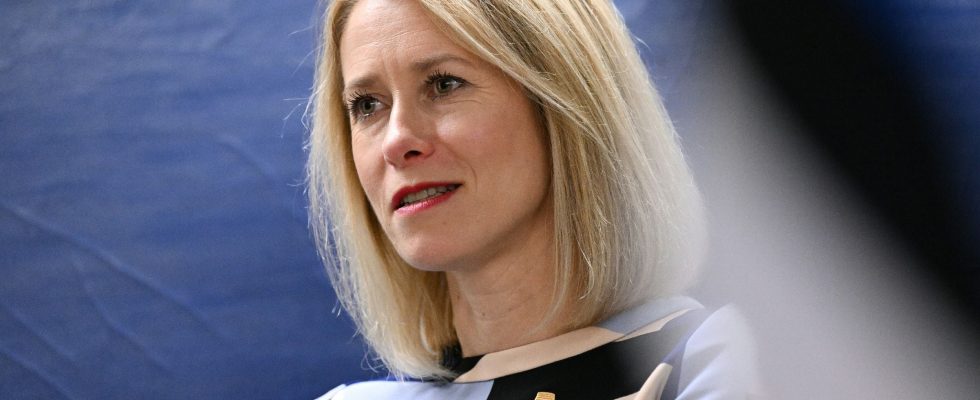“These people are responsible for decisions that are a de facto insult to history.” It is in these terms that the spokesperson for the Russian presidency, Dmitri Peskov, justified, on Tuesday February 13, the launch of several wanted notices against officials from the Baltic countries.
This concerns the Estonian Prime Minister, Kaja Kallas, prosecuted in Russia in “a criminal case”, according to a notice from the Ministry of the Interior which does not specify for which crime or offense the leader is accused. The Estonian Secretary of State, Taimar Peterkop, was also targeted by a wanted notice.
Furthermore, the Lithuanian Minister of Culture, Simonas Kairys, is also wanted by the Russian police. He is accused by the Kremlin of “hostile actions against historical memory”. For his part, the Lithuanian politician believes in a press release that “the regime [russe] does what he has always done: he tries to stifle freedom […] and continue to create their own version that contradicts facts or logic.”
According to a source from the state news agency TASS, the two Estonian officials and the Lithuanian minister are being prosecuted for “destruction and damage to monuments [d’hommage] to Soviet soldiers” of the Second World War.
In recent years, several of these monuments inherited by the USSR after the Second World War have been dismantled in the Baltic countries, as a sign of rejection of the Soviet period – these states considering themselves to have been occupied by the USSR.
Tensions between the Baltic States and Moscow
Recently, relations have further deteriorated with the conflict in Ukraine. The Baltic countries, now members of the European Union and NATO, consider the threat of a Russian invasion to be real and actively support kyiv in its fight against the Russian army.
In mid-January, Latvia and Estonia decided to end their legal assistance agreements with Russia, with officials from these two countries citing Moscow’s attack on Ukraine as the reason.
In addition, Tallinn had refused to extend the residence permit of the head of the Estonian Orthodox Church of the Moscow Patriarchate, a Russian citizen, considering that he represented a risk to national security.
Last week, Russia summoned the charges d’affaires of Estonia, Latvia and Lithuania, accusing them of “sabotage” the Russian presidential election in March by refusing to ensure the security of polling stations in Russian embassies on their territory. ground. As a reminder, Russian minorities reside in these three states and Moscow judges that they are oppressed there.
